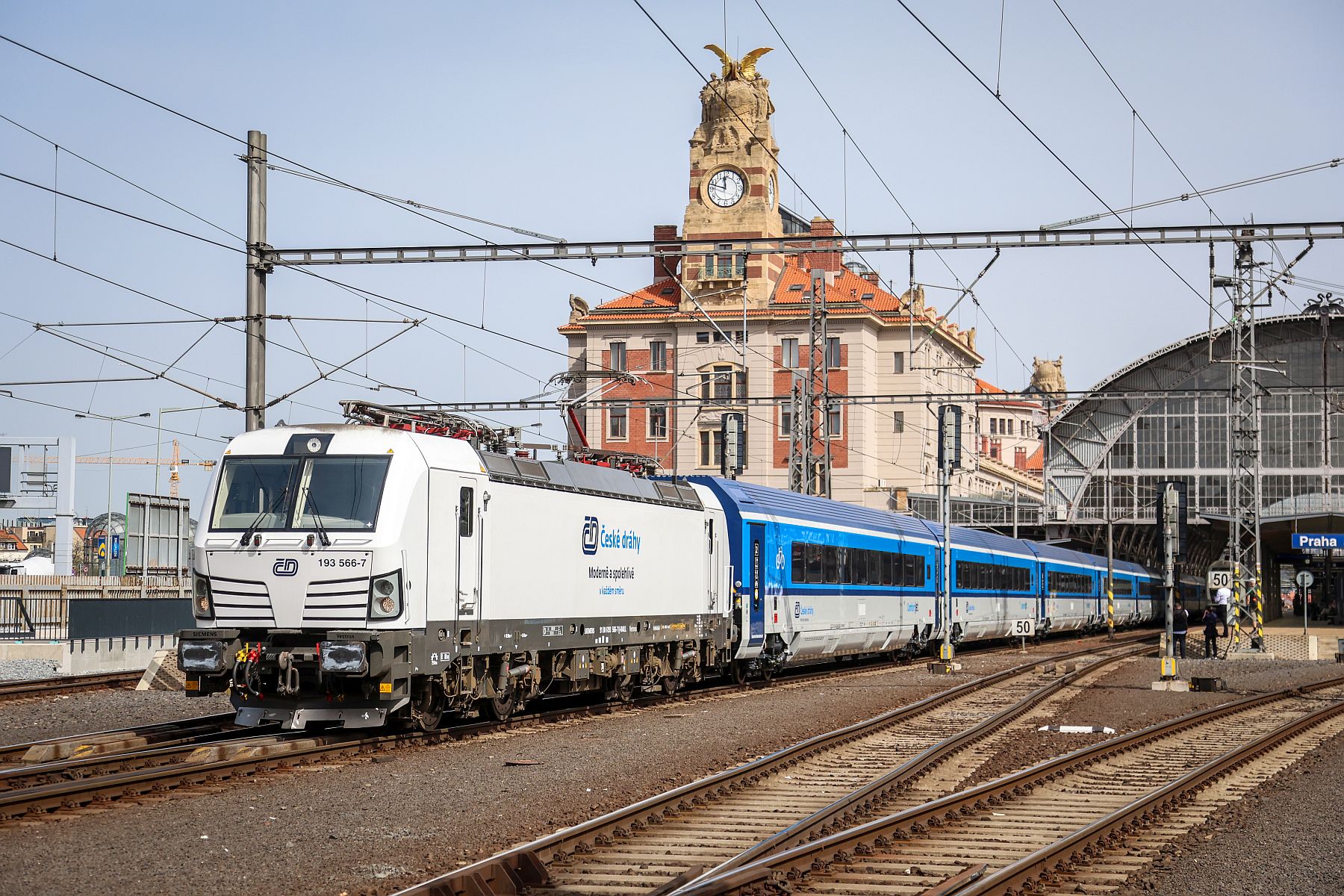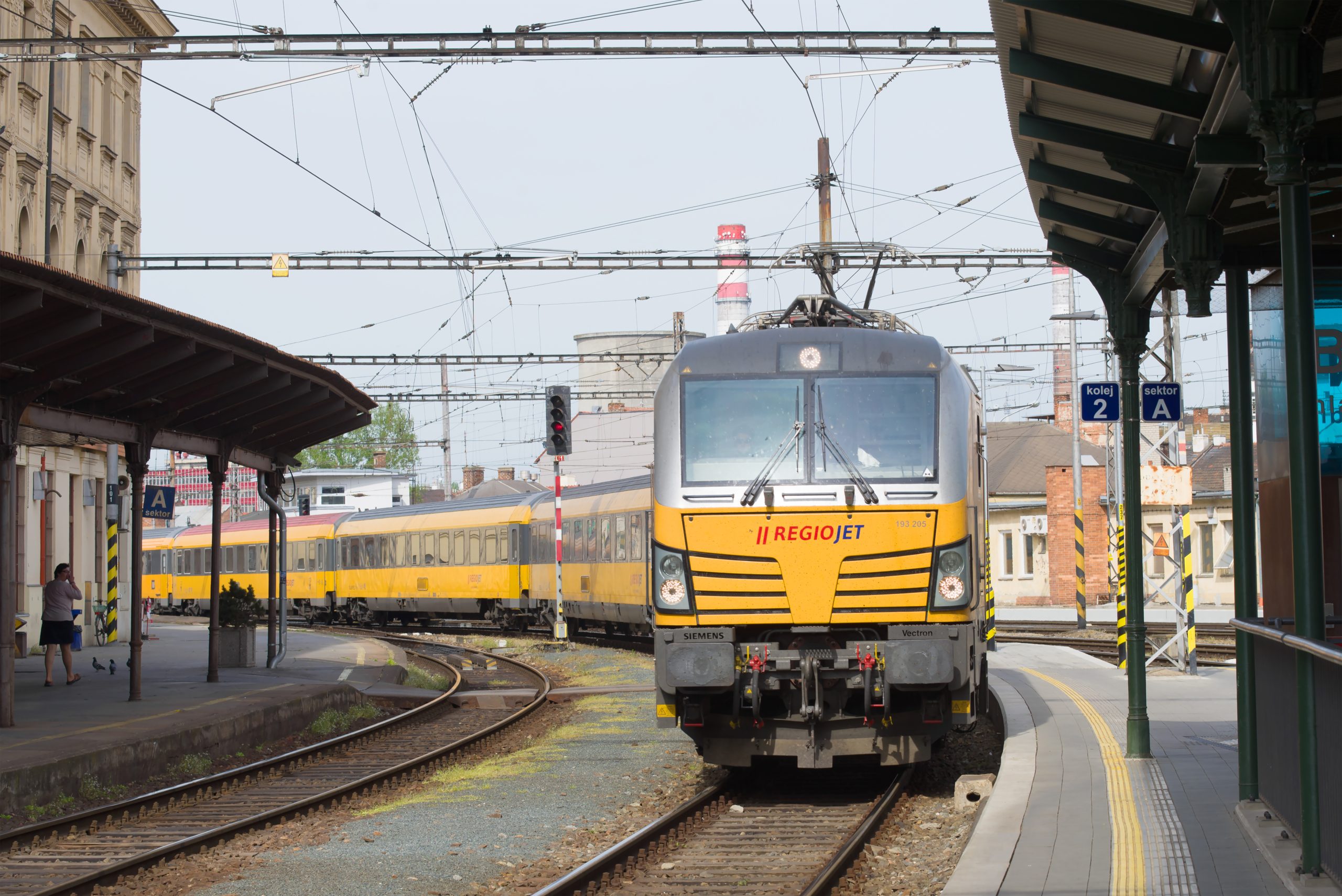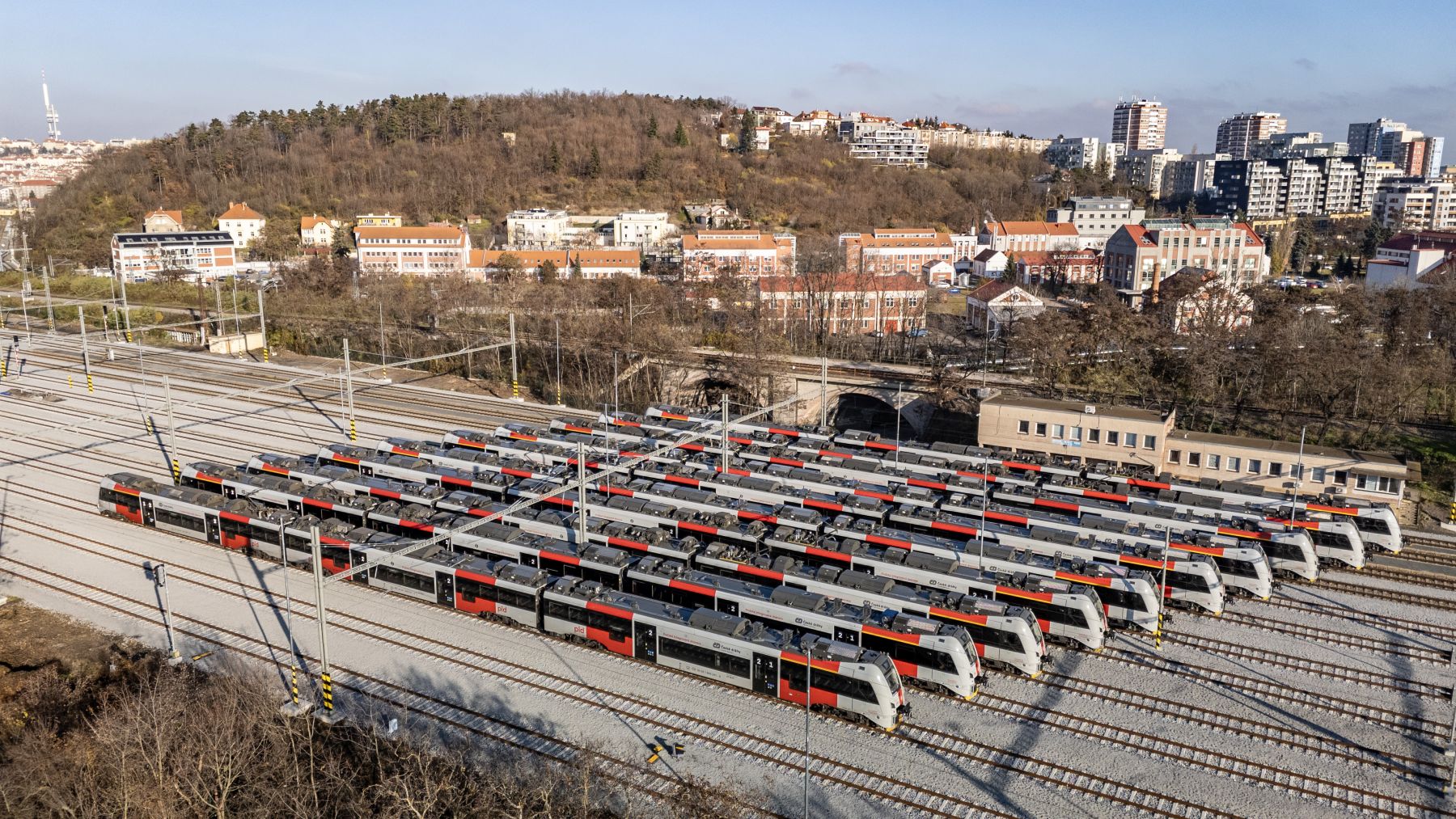private vs. state
Not one to shy away from hitting out at national rail companies, private operator RegioJet has accused Czechia’s state-owned passenger carrier České dráhy (ČD) of committing fraud by being the beneficiary of allegedly illegal state aid. The case is linked to the allocation of real estate during the separation of Czechia’s national operator and its infrastructure manager way back in 2003, which RegioJet claims has continued to give ČD an unfair advantage, harming private operators to this day.
RegioJet has accused ČD of benefiting from unlawful state aid stemming from asset misallocations during the 2003 division of the company from the national infrastructure manager Správa železnic (SŽ, formerly SŽDC). The private operator claims that the state mistakenly transferred real estate and infrastructure assets to ČD instead of SŽ, an issue which continues to affect its operations.
The error, according to RegioJet, was supposed to be corrected by transferring these assets back to SŽ, but instead, the state purchased them at inflated prices in multiple transactions between 2008 and 2016, totalling over 15 billion CZK (€624 million). A PwC valuation report, used to estimate the financial value of the transactions, was commissioned for these sales, but is alleged to have been flawed, failing to consider liabilities or accurately assess market value. This means, according to RegioJet, that taxpayers may have footed the bill for unnecessary or overpriced assets.
Controversial valuations and legal disputes
At the heart of the dispute is the PwC valuation report used to justify a 12 billion CZK (€480 million) asset transfer in 2008. RegioJet alleges the report inflated the value of land and other properties, including assets that were either unnecessary for railway operations or already legally owned by SŽ. These alleged errors, RegioJet says, gave ČD access to funds it could use to maintain dominance in the rail sector, while private operators faced unfair hurdles.
 RegioJet has gone to war with České dráhy. © České dráhy
RegioJet has gone to war with České dráhy. © České dráhy
For example, much of the land beneath railway tracks or adjacent barren land was allegedly included in the sale at prices significantly above market value. RegioJet’s analysis estimates that only 12.8 per cent of the transferred land was essential for railway operations. The rest, they argue, included assets like empty land or tracks that SŽ already legally owned but paid for again in the deal. They also claim that ČD manipulated the process to secure state aid, creating an unfair advantage over private operators.
RegioJet has criticised the PwC valuation report, calling it “flawed, unlawful, and contrary to case law” for failing to conduct a private investor test. “The real value of the assets was later confirmed by several valuation reports commissioned by RegioJet, which estimated this part of the business (including improperly included assets) at approximately 5 billion CZK (approx. €200 million). This demonstrated that approximately 7 billion CZK (approx. €280 million) of unlawful state aid had been granted, distorting competition and disadvantaging private operators.”
Question already in court
There are now ongoing court proceedings aimed at recovering that 280 million euros, with RegioJet as the primary complainant. Despite the seriousness of the allegations, the case has faced significant obstacles, including delays in judicial proceedings and active resistance from ČD and government entities such as Správa železnic (SŽ) and the Ministry of Transport.
 RegioJet is calling foul-play. © Karasev Viktor/Shutterstock
RegioJet is calling foul-play. © Karasev Viktor/Shutterstock
SŽ and the Ministry of Transport, which are ostensibly state entities tasked with safeguarding public resources, have defended the legitimacy of ČD’s transactions, while the trial has continued to spiral. At one point, a judge ruled that the statute of limitations for the case had expired due to court inaction, a decision later overturned by the European Court of Justice, which affirmed the national courts’ authority to order the return of unlawful state aid. This reversal brought back some hope for RegioJet and other private operators that historical grievances could finally be addressed. However, the legal and bureaucratic hurdles have significantly prolonged the case.
Calls for transparency in future deals
RegioJet has urged the Czech government to address these allegations and ensure that future asset transfers are conducted transparently and at what they consider a fair market value. The issue is particularly pressing given the context of ongoing railway liberalisation in Czechia and current deals underway.
Indeed, the allegations come amid the proposed sale of approximately 40 million square metres of land beneath railway tracks and surrounding areas from ČD to SŽ. Nearing completion, the deal has an estimated value of between 10 to 12 billion CZK (€400–480m). While earlier valuations ranged from 6 billion CZK (€240 million) by SŽ to 20 billion CZK (€800 million) by ČD, the two parties have agreed on a compromise.
RegioJet still riled
However, the deal has drawn scrutiny from private operators like RegioJet, who argue that without independent oversight, such transactions could continue to disadvantage private operators and stifle the competition that EU liberalization policies are supposed to foster.
The Ministry of Transport and SŽ have largely remained silent on the issue, but they have continued to defend the legitimacy of past transactions, insisting that they were conducted in accordance with applicable laws and valuation standards, with all of Czechia’s state rail bodies publicly committing to ensuring that future deals align with public interests.
But RegioJet remains adamant that the system must change. “We demand that future asset transfers be conducted transparently, with expert discussions about what the state is repurchasing and whether these assets are genuinely necessary for railway operations,” said the company. “Such transfers should occur at market value.”
Read more:
Want full access? Take advantage of our exclusive offer
Are you already a subscriber?


